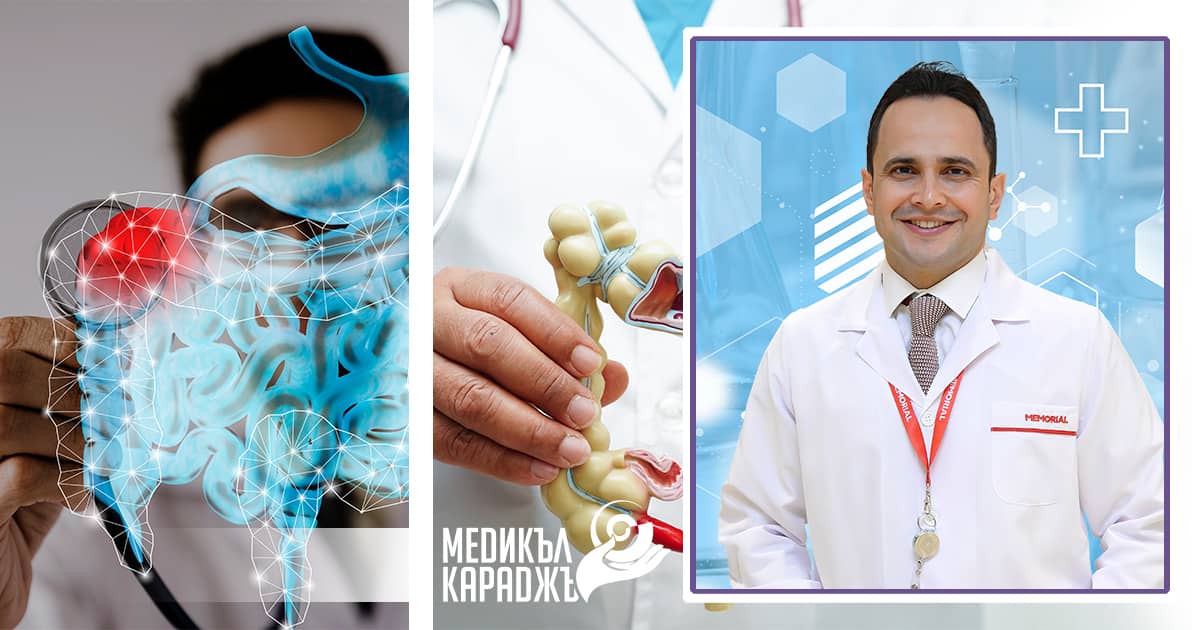Polyps of the colon
The specialist in gastroenterology and internal diseases prof. Salih Boa, explained in detail everything about colon polyps that can threaten health.
Полипите на дебелото черво са малки бучки тъкан, които могат да се образуват върху лигавицата на дебелото черво (колон) или на ректума. Полипите на дебелото черво могат да бъдат открити чрез колоноскопия, която трябва да се направи на всеки мъж и жена над 50-годишна възраст, дори и да няма оплаквания. Процедурата колоноскопия е от голямо значение при изследване на тънките и дебелите черва. Полипите могат да бъдат предшественици на рак и някои видове могат да станат ракови образувания с течение на времето. Следователно полипите на дебелото черво трябва да се приемат сериозно и да се проследяват.
What are the symptoms of colon polyps?
Colon polyps are usually asymptomatic and can grow quietly. However, some large or abnormal polyps may cause the following symptoms:
- Rectal bleeding: Blood in the stool or bloody stools may suggest the presence of large polyps.
- Change in bowel habits: Significant changes in bowel habits, such as chronic diarrhea or constipation.
- Abdominal pain or cramps: Large polyps can cause abdominal pain or cramping.
The diagnosis can be made during a routine colonoscopy!
Polyps in the colon are usually detected during a routine colonoscopy. Colonoscopy allows the colonic mucosa to be examined with a tube-shaped device in a sedated patient.
How are colon polyps treated?
Treatment of colon polyps depends on the size, type and number of polyps. Polyps are usually removed without pain or incision during colonoscopy while the patient is still asleep, using methods that vary depending on the size of the polyp, and then submitted for pathological examination. These procedures eliminate the risk of polyps becoming cancerous.
How important is early diagnosis?
It is important to diagnose and treat colon polyps because these polyps can become cancerous. Therefore, people over the age of 50 should have regular colonoscopies, whether or not they have a family history of colon cancer. Early diagnosis can help treat colon cancer effectively.
In conclusion, colon polyps can grow silently and cause no symptoms, which is why regular check-ups are important. Medical procedures such as colonoscopy are effective tools for early detection and treatment of polyps.










